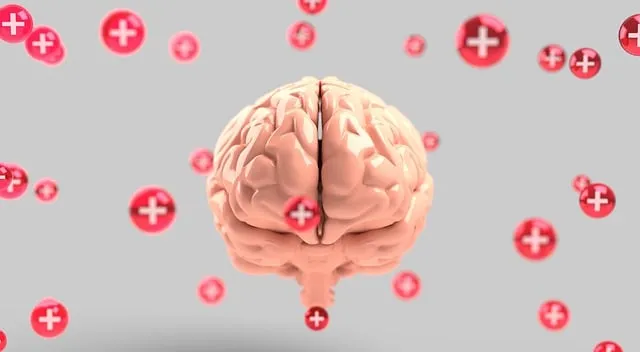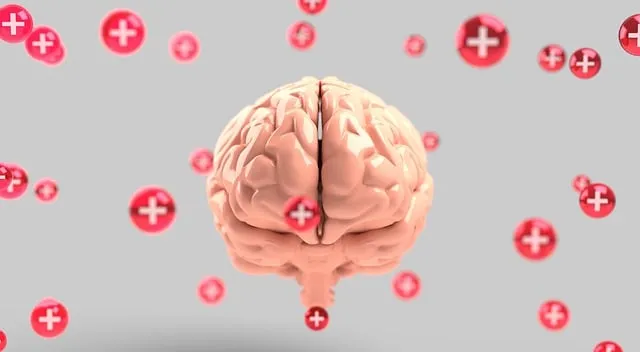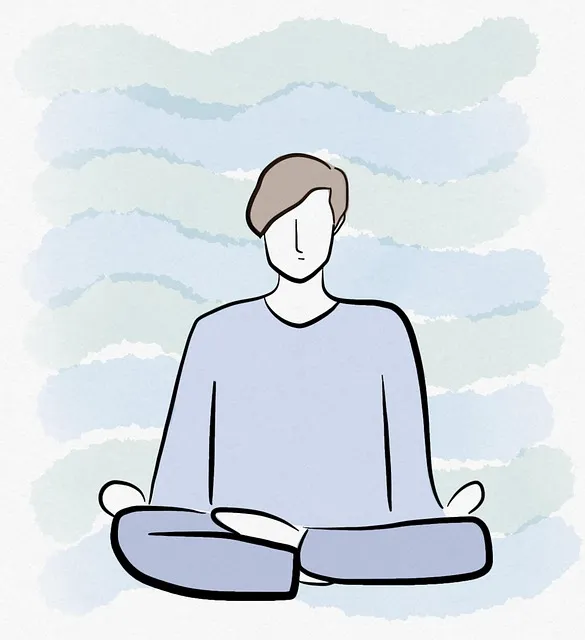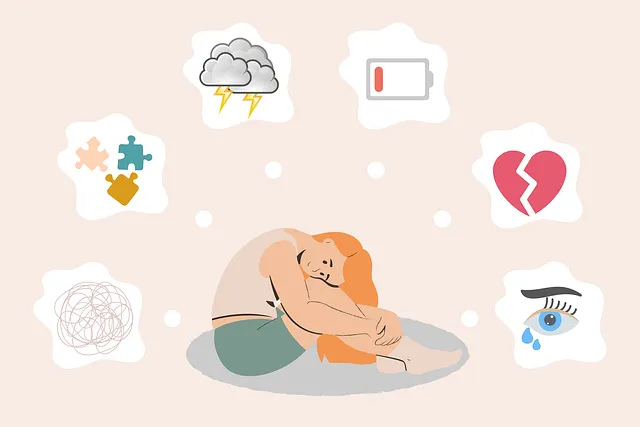The Kaiser Permanente Mental Health Access Center in Greenwood Village promotes resilience and accessible care through positive thinking exercises, offering a structured guide for self-awareness, emotional intelligence training, and personalized counseling. These practices, including reframing negative thoughts, gratitude, affirmations, and visualization, enhance well-being, especially for stress management, anxiety, or low mood. The center's expertise, cultural sensitivity, and holistic approach measure success through regular assessments, ensuring tailored interventions for long-term mental health benefits, both individually and communally.
Discover the power of positive thinking with our comprehensive guide, featuring insights from the Kaiser Permanente Mental Health Access Center in Greenwood Village. Learn how simple exercises can transform your mindset and boost mental wellbeing. From understanding the benefits to a step-by-step implementation process, this article offers practical strategies for navigating life’s challenges with optimism. Uncover methods to measure success and explore the long-term impact on mental health, inspired by the innovative programs at the Kaiser Permanente center.
- Understanding Positive Thinking Exercises and Their Benefits
- The Kaiser Permanente Mental Health Access Center in Greenwood Village
- Implementing Positive Thinking Exercises: Step-by-Step Guide
- Measuring Success and Long-Term Impact on Mental Wellbeing
Understanding Positive Thinking Exercises and Their Benefits

Positive thinking exercises are simple yet powerful tools designed to shift one’s mindset towards a more optimistic and positive perspective. These practices involve various techniques such as reframing negative thoughts, practicing gratitude, affirmations, and visualizing success. The benefits of incorporating positive thinking into daily routines are vast, offering support not just for mental health but also physical well-being.
According to the Kaiser Permanente Mental Health Access Center in Greenwood Village, fostering a positive mindset can significantly enhance overall happiness and life satisfaction. It encourages individuals to develop self-care routines that prioritize mental health awareness. By engaging in these exercises, one can improve their emotional resilience, boost confidence, and cultivate a more optimistic outlook on life. This proactive approach to well-being is especially valuable for those looking to navigate stress, anxiety, or low mood.
The Kaiser Permanente Mental Health Access Center in Greenwood Village

The Kaiser Permanente Mental Health Access Center in Greenwood Village is a beacon of hope and resilience for the community, offering a range of services designed to promote mental well-being. This center serves as a testament to Kaiser Permanente’s commitment to making quality mental healthcare accessible to all, regardless of background or circumstances. It provides a warm and supportive environment where individuals can embark on their journey towards better mental health.
One of the standout initiatives at the access center is the Community Outreach Program Implementation, which leverages self-awareness exercises and emotional intelligence training to empower residents. Through workshops, group discussions, and personalized counseling sessions, the program equips participants with practical tools to navigate life’s challenges with greater poise and clarity. The center’s approach emphasizes the importance of fostering connections within the community, ensuring that support for mental health is not just individual but collective as well.
Implementing Positive Thinking Exercises: Step-by-Step Guide

Implementing Positive Thinking Exercises: A Step-by-Step Guide
At the Kaiser Permanente Mental Health Access Center in Greenwood Village, we believe that positive thinking exercises are a powerful tool for enhancing mental well-being. Our mental health education programs design these exercises to be accessible and impactful, catering to individuals from diverse backgrounds. The process begins with understanding the individual’s unique perspective and needs. This involves gathering information about their current mindset, stressors, and goals through open discussions or standardized assessments. Once this foundation is set, healthcare providers trained in cultural competency begin tailoring specific positive thinking strategies.
These strategies may include mindfulness practices, affirmations, and cognitive restructuring techniques. Mindfulness encourages individuals to focus on the present moment without judgment, fostering a sense of calm and clarity. Affirmations are positive statements that counteract negative self-talk by reinforcing resilience and self-worth. Cognitive restructuring helps identify and challenge distorted thinking patterns, replacing them with more realistic and balanced perspectives. Regularly incorporating these exercises into daily routines can significantly contribute to overall mental health and resilience, as supported by our healthcare provider cultural competency training.
Measuring Success and Long-Term Impact on Mental Wellbeing

Measuring success and gauging the long-term impact on mental wellbeing is a critical aspect of positive thinking exercise implementation. Programs like those offered by the Kaiser Permanente Mental Health Access Center in Greenwood Village focus not just on immediate outcomes but also on fostering sustainable, positive mindsets. By regularly assessing participants’ emotional intelligence, trauma support services utilization, and anxiety relief levels, these centers can tailor interventions to meet evolving needs. This holistic approach ensures that individuals not only experience short-term benefits but also develop the tools needed for long-term mental wellbeing.
The success of such initiatives extends beyond individual transformation; it contributes to a broader community impact. Positive thinking exercises, when effectively implemented and measured, can lead to reduced stress levels, improved coping mechanisms, and enhanced overall quality of life within communities. This ripple effect is particularly significant in areas like Kaiser Permanente’s service center in Greenwood Village, where access to mental health resources plays a pivotal role in promoting the emotional resilience of residents.
Positive thinking exercises, as demonstrated by the successful programs at the Kaiser Permanente mental health access center in Greenwood Village, offer a powerful tool for enhancing mental wellbeing. By following a structured step-by-step guide and consistently measuring progress, individuals can unlock their potential to cultivate optimism and resilience. This article has provided valuable insights into the benefits of these exercises, serving as a starting point for anyone looking to improve their mental health through positive thinking practices.






